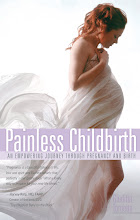What is infant eczema?
Infant eczema is a topical skin rash, most frequently showing up any time after birth on the face, arms and legs but rarely in the diaper area. The rash can look like chapped, scaly skin or tiny red bumps that can blister or ooze, and are incredibly itchy. Eczema patches can be spread by scratching so it’s important to keep scratching to a minimum.Anyone with a family history of eczema or respiratory illnesses has an increased likelihood of also getting infant eczema.
What causes infant eczema?
Infant Eczema is a hypersensitivity of the skin to irritants in the body, whether they be diet-related, respiratory (as in the case of asthma, allergies or hay fever), or a reaction to topical irritants such as chemicals in lotions, synthetic fabrics, or perfumes in laundry detergents, soaps or lotions.Food sensitivities such as dairy can certainly be responsible for infant eczema, although only about one third of all babies and children have diet-related infant eczema.
Dairy – the #1 Food that can cause allergic reactions in a baby
Dairy is the single biggest culprit causing digestive problems in infants. In breastfed babies who exhibits rashes or stomach problems Moms should stay away from dairies for awhile to see if it may be the case of your baby’s fussiness, or discomfort. You may want to try to completely eliminate it for a period of two to four weeks to determine if it makes an impact in your baby’s comfort level. Kosher items labeled “Parve” are dairy-free. Be sure to read ingredient labels for hidden dairy and avoid the following items:- Milk or milk fat
- Butter
- Cream
- Whey
- Whey protein
- Casein or caseinates
- Lactose
- Paneer
Other suspected causes are dust, dust mites, mold, pet dander or pollen. Once a baby develops infant eczema there are numerous triggers that cause recurrences such as sun exposure, heat, topical irritants and stress.
Treatments for infant eczema
Do:- Keep your house a cool temperature with average humidity by using a humidifier or dehumidifier if necessary.
- Wash all bedding frequently and use a double rinse cycle on any of baby’s clothing or bedding items.
- Breastfeed your baby as much as possible to pass your anti-bodies onto your baby.
- If breastfeeding consider an elimination diet to see if any items in your diet are contributing to your baby’s eczema.
- Increase essential fatty acids in baby’s (if eating solids) or your diet. Fish oil, olive oil, avocado oil and flax seed oil are all good choices.
- Only dress your baby in well-ventilated natural fiber clothing.
- Consider seeing a naturopath if your baby is eating solids and seems to have no food sensitivities.
- Harsh chemicals
- Petroleum (can clog the pores)
- Scents or perfumes added to personal products or laundry detergents for both you and your baby.
- Synthetic fibers
- Overdressing your baby
- Over-stimulating situations and crying as much as possible.
- Sun exposure
Care for infant eczema
- Use only lukewarm water when bathing. You can add goat’s milk directly to the bath. For older babies, bathe daily to remove any irritants on skin like dirt, sweat or sun block (best not to use sun block at all.) Newborns don’t need bathing for cleaning purposes, but a warm bath can really sooth and tired and uncomfortable baby. Pouring grape seed oil in the bathtub water also keeps the skin moisturized.
- Use only a gentle, natural baby soap that doesn’t remove necessary skin oils or contain unnecessary scents or ingredients.
- Gently pat your baby’s skin mostly dry and then begin your moisturizing routine quickly to trap moisture from the bath in the skin.
- Instinctually you’d want to use something to alleviate the scaly skin, beware of products with fragrances, or worse cortisone, or steroids.
- Good moisturizers for eczema are Eucerin Aquaphore and Eucerin Plus Lotion. They soothe the infected skin. Another good remedy, that also works for cradle cap, is 100% food grade Grape Seed Oil, coconut oil/butter again food grade. What I love about food grade oil is that if you can eat it probably is at its purest state. For itching, you may use calamine lotion. Ask around or go to your health food store and see what they have. READ LABELS if it has fragrance or color stay away from it.
Are medications for infant eczema safe?
There is legitimate concern about medications marketed for eczema in babies. Dr. Greene’s excellent website has information on infant eczema treatment warnings. We believe that only natural products should ever touch a baby. What is deemed safe today by the FDA may turn into tomorrow’s recall once more testing is conducted.Most pediatricians prescribe a 1% hydrocortisone cream, such as Locoid Lipocream, they say that one should take caution in African American babies with eczema because this cream bleaches the skin. But, think about it, if it can bleach the skin of an African American baby do you really want to put it on your baby?
The pediatrician should be contacted if the baby’s rashes do not improve with home remedies or if they worsen. Also, a pediatrician should be called if the baby gets a fever or infection or if blisters, redness, pain, oozing fluids or yellow crust occur.






2 comments:
Eczema, a very itchy skin condition that causes red, swollen, sometimes scale-like splotches, particularly on the flexor side of joints, is very common in infants and children seems to be a skin expression of food sensitivities.
Eczema photos
I became satisfied to examine this article after looking at google, after reading I have written a piece of article about:new apple fruit Thank you for the article and supporting me.
Post a Comment